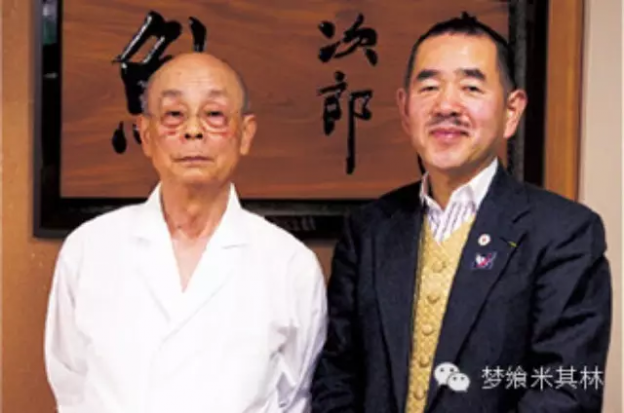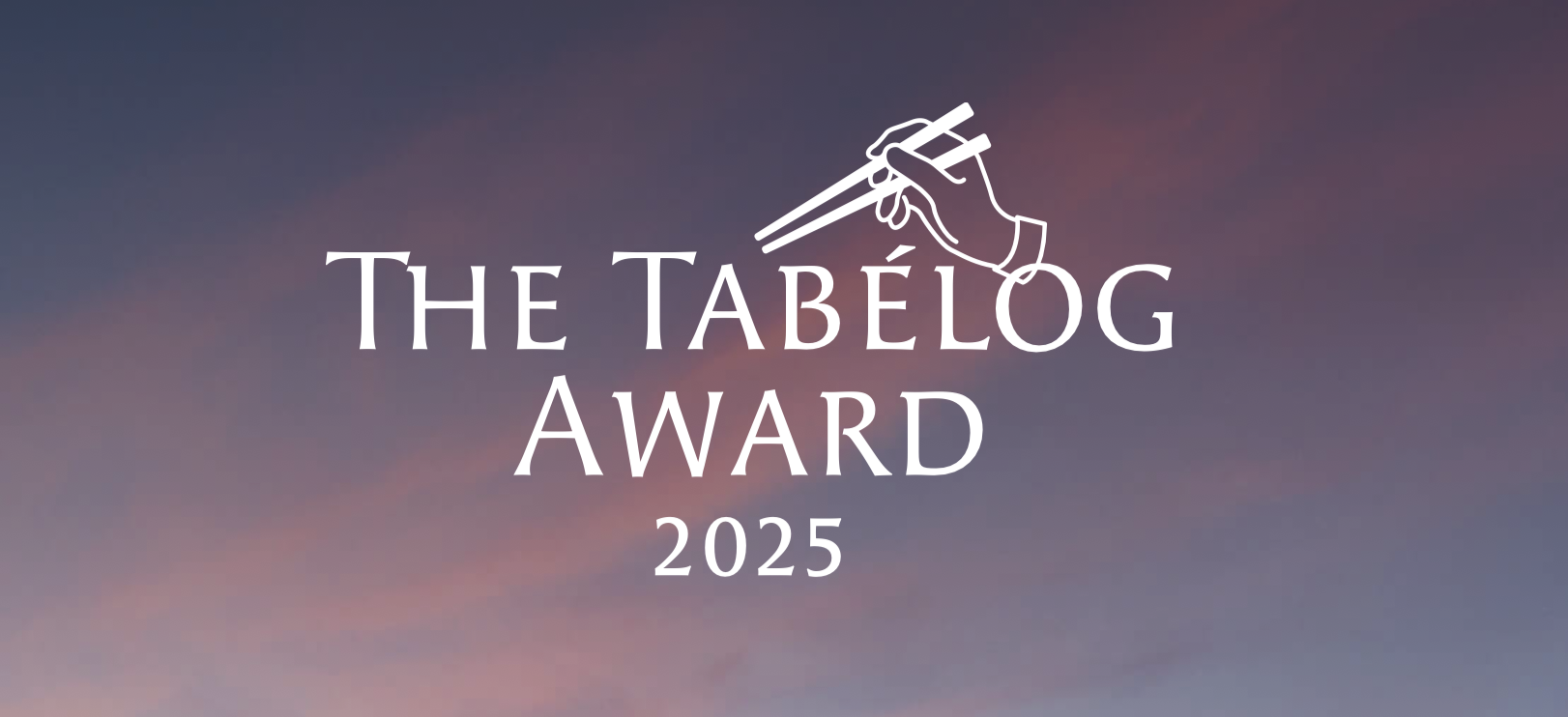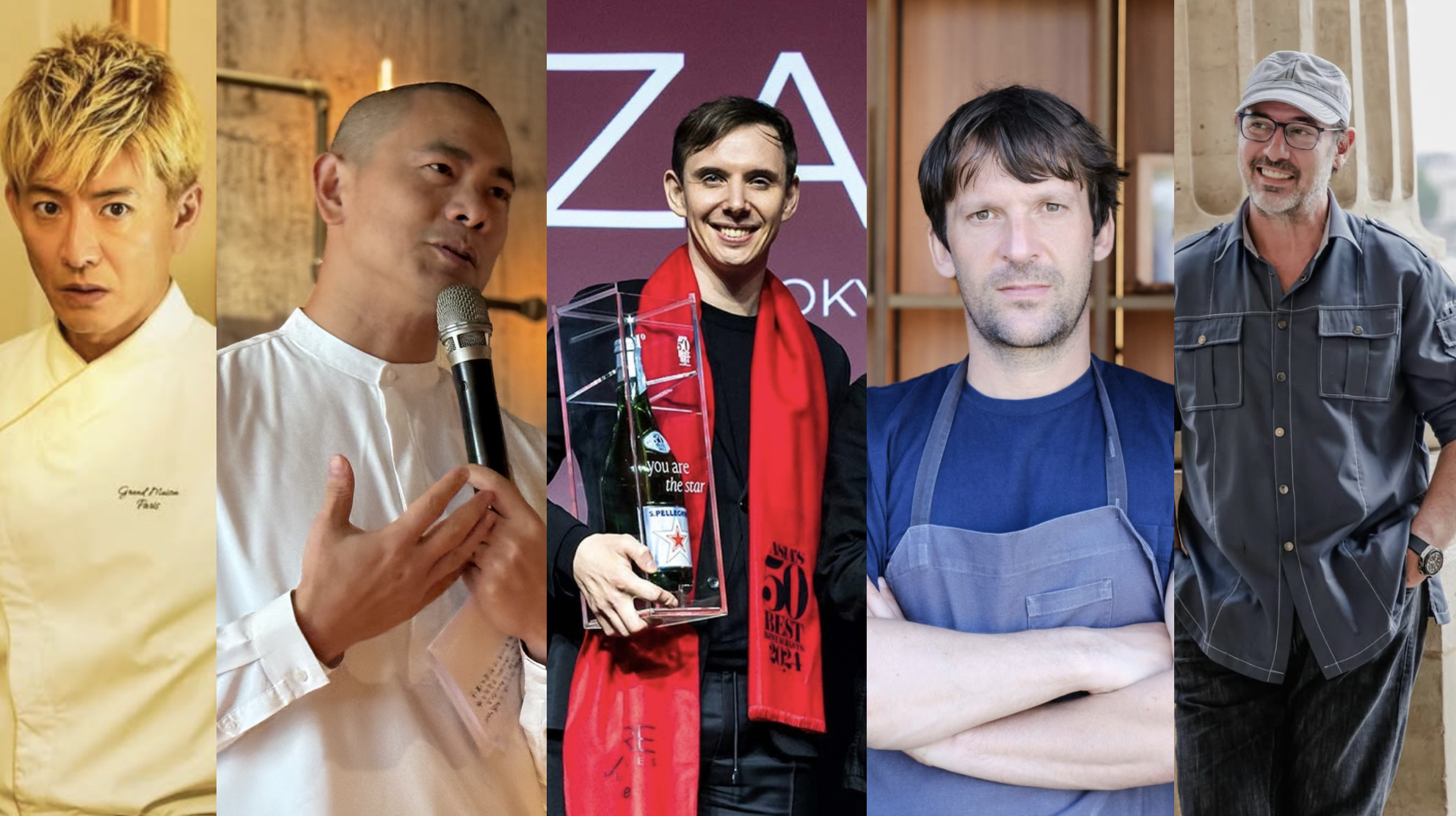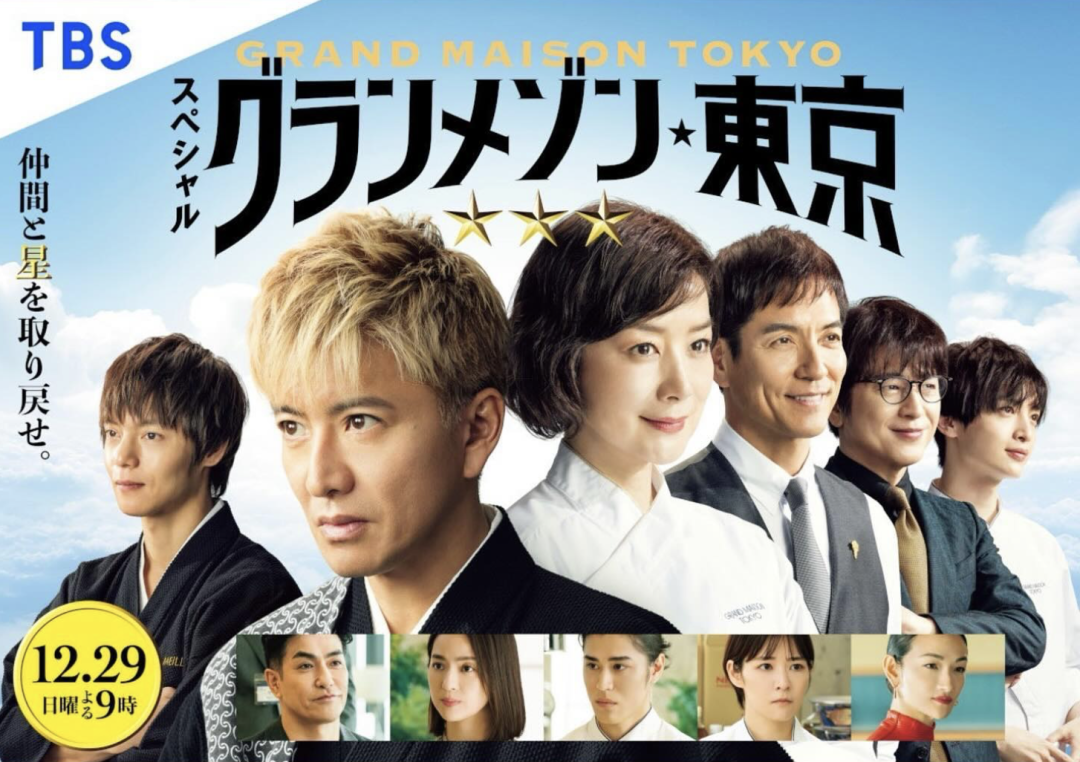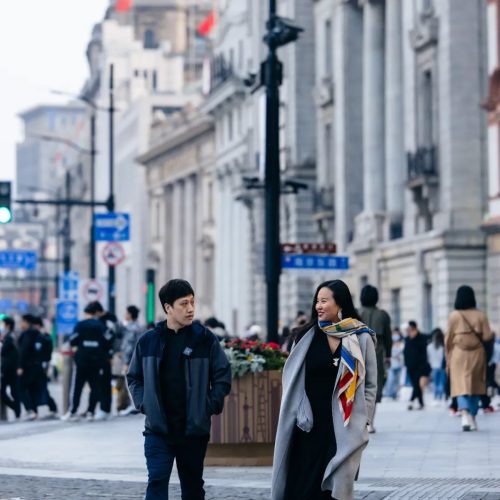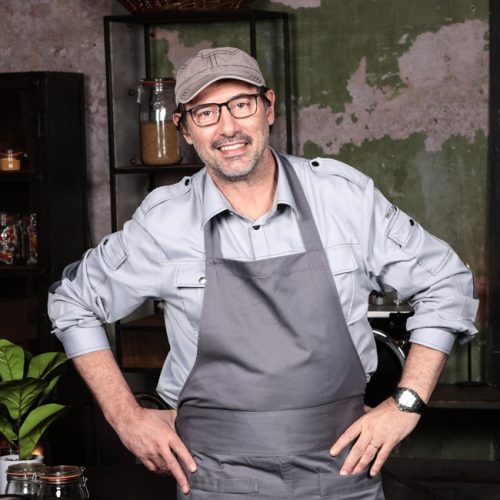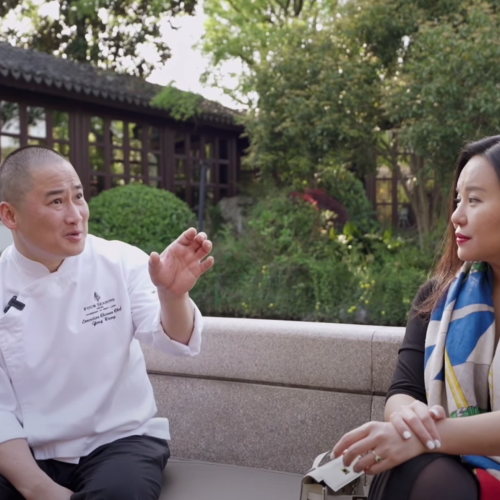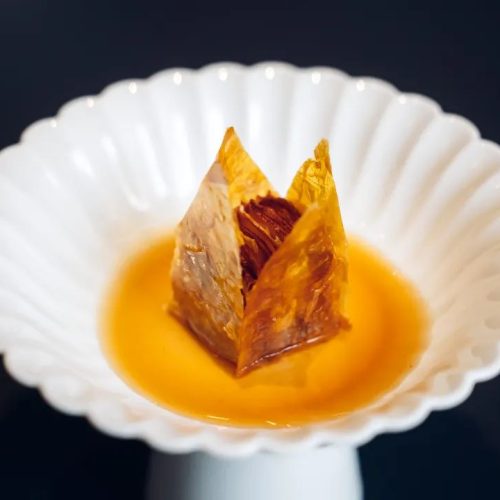撰文: 陳慶華 Jocelyn Chen

有幸到吃到小野二郎所捏出來的壽司,這是身邊許多人的夢想。幾前年第一次看到了李怡志先生所寫的一篇關於壽司之神之小野二郎與山本益博之間的共生關係,之後看了壽司之神紀錄片,就像是大多數的美食愛好者一樣,默默的將數寄屋橋次郎放在bucket list 裡,夾雜著興奮與緊張的心情期待著去朝聖。
閱讀以及不斷多方拜訪名廚體驗不同菜式,的確在味蕾以及對食物的認知上產生極大的改變。相對的瞭解的越多,評論一事便會更趨保守。
只有少數的大師級的廚師可以被全世界的廚師所仰慕,小野二郎先生是其中一位,而二郎最敬重的食評家是山本益博。壽司之神的導演David Gelb也稱呼山本為壽司詩人,山本建議Gelb將本片的拍攝以交響樂章來呈現,此舉也影響了Gelb後續在Netflix所拍的主廚餐桌chef’s table系列的手法,也沿用了大量的交響樂,以及美食家食評家的訪談,讓紀錄片本身更有故事張力。David Gelb也在受訪時提到他欠山本非常大的人情。至於chef’s table系列紀錄片,之後有機會一一詳述。
影片為非營利組織MAD 創始人同時也有「北歐廚神」之稱的Noma 餐廳主廚René Redzepi 幾個月前與團隊及山本益博先生一同拍攝,記錄了壽司大師小野二郎。小野二郎講述了自己對於工作的熱情以及當初的夢想,並透露自己目前還在為即將到來的2020年東京奧運會做準備。影片中不難看出René Redzepi也是十分的緊張呢。
「北歐廚神」 Noma 餐廳主廚 René Redzepi 最近與團隊一同前往日本拍攝記錄了傳奇壽司大師小野二郎。許多人通過 2011 年的一部廣受好評的紀錄片《壽司之神》認識到這位元大師,就連奧巴馬總統到東京時也曾拜訪過他的壽司店「數寄屋橋次郎」
以下節錄自李怡志先生richyli.com 于2011所寫的文章”壽司之神之小野二郎與山本益博”:
《壽司之神》的主角是日本壽司界的大老小野二郎。他在這一行超過70年,看過大風大浪,而且最重要是看過整個產業不斷的迴圈與變化,在幾十年的過程中,日本的經濟、日本人的飲食習慣、日本的食材都有很大的變化,經過了不同浪潮洗刷下他老人家還能繼續屹立不搖,獲得米其林三星的肯定,精神非常值得學習。

這部片子基本上的主軸就是「職人魂」,找一項自己有興趣、有天賦,而且能夠有穩定收入(我覺得這點絕對不能忽略)的工作,然後用全部的熱情,將它完成到最完美、最極致,大概就是這樣的精神。這部片從勵志片的角度來看,非常適合在工作上遇到挫折、恍惚,或者不確定要不要「君子立長志」的人去看。小野二郎的职人魂是不容怀疑的,自己固守一家小店すきやばし次郎,从食材、制作、招待等等都有自己的明确的规范,而且徒弟出去开店,也是米其林三星,这就真的非常厉害了。畢竟很多米其林三星的老闆自己開的分店或者副品牌都很難再得米其林三星,但水谷八郎離開親方自己開店之後,也能夠得到米其林三星,表示這樣的職人魂強大到能夠貫穿到徒弟身上。(注:2015水穀為兩星)
這部片也是美食片。我看到小野二郎捏出來的壽司幾乎都像「活物」,十分驚訝。這點看了電影自然就有深刻體會。從事餐飲,甚至任何與溝通、五感相關產業的人,從中必然大有收穫。
以上兩點,大概看電影前就會知道大概有這樣的內容了,當然,強度或許都比想像中更強,更深入,所以值得一看。片中有一个重要的配角,山本益博,我觉得他在电影中,或许也在真实生活中,对小野二郎或すきやばし次郎都扮演了相当重要的角色。

人家說富不過三代,又說富過三代知吃穿,很遺憾因為戰亂的關係我就是那第四代!雖然我不太會吃穿,但我看過「富三代」的品味如何。我們家的富二代、富三代都在上海讀大學,富三代還能下廚房,對於吃的功力非常了得。我雖然沒有得到任何真傳(請叫我麥當勞世代),但好歹看過這樣的人如何吃、怎樣看待食材、用什麼樣的態度來面對飲食。
在網路興起之後,突然間冒出很多「飲食寫作者」。一時之間「美食家」、「美食評論家」、「網路美食家」很多,但我始終覺得「能吃」這件事不是你真的「吃到」就算的。「吃飽」簡單、「吃貴」容易、「吃好」不難,但「吃巧」呢?當一個美食記者或者網路美食家,很容易,只要你在大媒體工作,或者部落格每天貼食記,不論是人家招待或者媒體出錢,天天都可以吃飽,偶爾也能吃貴、吃好,可是要從中體會出那個「巧」,真的需要一點文化底蘊。沒有文化底蘊的美食家,很多即便再有名,大多只停留在「高級吃飽」或者「昂貴吃飽」的階段,這種美食家的特徵就是外型一看就吃得很飽,有的飽到身體不好,還有一個最糟糕的是我曾經在電視訪問中看到某位元記者轉任的「美食評論家」說出「飽到肛門爆開」這種話。
任何一個與五感相關的產業都需要好的評論者才容易進步,我看了壽司之神之後才深深體悟,啊,原來人家有山本益博這麼強的評論者(與消費者),產業才可能進步到這個水準啊,這種良好的共生關係,真的很令人嚮往。
在電影《壽司之神》當中,我從山本益博得到的收穫不比小野二郎少,他不是吃飽、吃貴、吃好那種等級的,他真的很知道美食之巧在哪裡,而且是從各種不同的感官與角度一起品味。到了山本益博這種瞭解壽司的境界,不也是另外一種《壽司之神》?!

轉載或其他合作事宜
請聯繫微信號:tastytrip2020
出處為www.richyli.com
NPR News 記者Renee Montagne採訪壽司之神的導演David Gelb的訪談,透過山本益博,小野二郎才同意拍攝紀錄片。
MONTAGNE: How did you get Jiro to let you follow him?
小野二郎如何讓你同意跟拍他。
GELB: Well, I owe a great deal to the food writer, Masuhiro Yamamoto. I like to refer to him as a as a sushi poet. He was the judge of “Iron Chef” in Japan. He convinced Jiro that I would do a fair telling of his story.
我欠山本益博先生一個很大的人情,我喜歡稱呼他為壽司詩人,當時他是日本料理鐵人節目的評審,他說服了小野二郎我會拍攝一個紀錄片來真實的呈現關於他的故事。
MONTAGNE: One thing about this film that brings you in is when one first meets Jiro, you know he’s amazing at what he does, you know he’s the best sushi chef in the world, and yet he seems quite fierce. And bit by bit, you see this other side – he’ll break out into a little smile. And that, maybe in a way, that seems more of a gift.
這部紀錄片讓您遇見二郎,你知道他是世上數一數二的壽司師傅,但他似乎非常犀利及嚴肅。通過點點滴滴,你看到他的另一面 – 他的微笑。而這,或許在某種程度上,是非常不容易的。
GELB: Absolutely. When I first ate at the restaurant, I was very, very nervous ’cause I heard, you know, what is serious man he is and kind of how stoic he is, and he doesn’t talk to the customers, and the meal last 30 minutes . And, you know, you’re out of there as soon as you finish, basically.
當然。當我第一次在次郎用餐,我感到非常,非常緊張,因為我聽說了,他是多麼的嚴肅,他不跟客戶說話,而一頓30分鐘,而且,只要你用餐完畢將離開餐廳,基本上是這樣。
But as soon as he finished service and the customers leave the restaurant and he becomes, you know, a very personable, kind gentleman. And what I realized is that it’s not that he’s mean, he’s just concentrating, using his full attention on the task at hand, which is making sushi. He’s just focus on making every single piece of sushi the best sushi of his life.
但是當他完成服務和客戶離開餐館,他是一位風度翩翩,親切的紳士。而我意識到的是,他並不是態度嚴肅,他只是集中精力,用他的全部注意力集中在手頭的任務,製作壽司。他只是專注於讓每一貫壽司成為他一生中最好的壽司。
MONTAGNE: You know, does it matter that it’s such a small place? His entire restaurant consists of a bar with 10 stools?
GELB: Yeah, there’re 10 seats in the bar. They do maybe one turnover for lunch and one turnover for dinner – that’s all the people that he can serve to his standard, ’cause that’s all the fish that exists in the fish market that will satisfy him.
MONTAGNE: There are plenty of examples, in this film, of the lengths that Jiro goes to, to make the ultimate sushi. One of them, which he doesn’t do himself: massaging the octopus. What’s that?
GELB: Octopi are often tragically under massaged in sushi restaurants.
MONTAGNE: So then you end up chewing on them in a way.
GELB: Yeah. Well, octopus, you know, I think a lot of people that eat octopus in a normal sushi restaurant – especially Americans, you know, octopus isn’t a popular because it’s known as being chewy and it has sort of suction cups. And, you know, a lot of people think it’s a piece of rubber. And Jiro laments that, as well. ‘Cause he thinks that octopus often has no flavor. And so, he developed a way to make octopus delicious.
It needs to be massaged for an hour every day, in order to both tenderize it and also to bring out the flavors of what the octopus has been eating. The octopus that they get has a fantastic diet of clams and shellfish. And so, by massaging the octopus they’re unlocking all the flavors that’s inside of it. And that’s one of the reasons the Jiro’s octopus is so delicious.
MONTAGNE: Your film takes us to this fish market. Let’s take a listen to the sound of it.
MONTAGNE: Describe for us what we’re hearing.
GELB: This is the tuna auction and the procedure has been unchanged for over a hundred years. There’s no digital record-keeping of any kind. It’s all, you know, completely analog. The auctioneers are ringing bells to indicate where the auctions are taking place on the floor, ’cause there may be a few auctions happening at the same time for different fish. And the auctioneers are sort of like, yelling, like in a Sotheby’s essentially, and it kind of takes on a very musical quality.
MONTAGNE: Almost like jazz, whereas the rest of the film, there is a score that is classical music. And it seems as if you structured the story as a kind of symphony.
GELB: Certainly, and this is something that Yamamoto, our food writer and narrator, he conveyed this to me when I first started talking to him about Jiro and about sushi. Is that Jiro’s sushi – his sushi courses like a concert; it’s like a piece of music. And it has movements. And it has, you know, kind of hills and valleys – all very delicious, but the hills and valleys meaning the contrasts and the flavors between the different sushi.
MONTAGNE: Throughout the film we see sushi; sushi that’s extremely elegant and an exquisite to look at. Even without being able to taste it, it does give one the impression that it’s quite sublime.
GELB: So, they’re actually quite easy to shoot because you just have to point the camera from a compelling perspective and the sushi does the work itself. First of all, just Jiro’s sushi, they look like jewels. You know, they are incredibly beautiful. When he places a piece of sushi on the plate, it settles into place. And Yamamoto, the food writer, describes it as: The soft landing.
And it’s because Jiro packs the rice firmly so it retains its shape, but also very lightly so that there’s air that moves within the rice.
MONTAGNE: How does it taste?
GELB: The rice is warm and fluffy, but each grain retains its perfect shape, and it’s just slightly out al dente at the same time. And when you put a piece of sushi in your mouth, the rice kind of poofs. Eric Ripert, the French Chef, described it where the rice just poofs and it just the flavors combine with the fish. And what’s happening is the rice is elevating the fish. And when you master that balance, like Jiro has, the only way to describe the sensation of eating it is umami – and that’s kind of the perfect balance where you just taste the true essence of the fish.
MONTAGNE: And umami, as communicated by his oldest son, as the experience of, ahh.
GELB: Of ahh, exactly. Umami is just the feeling of satisfaction while eating. You just – are just moved by what you eat. After having eaten there and understanding all the work that goes into it, eating a piece of sushi from Jiro is really quite emotional, especially when you know the vast labors that have gone into creating that single bite.
-End-



